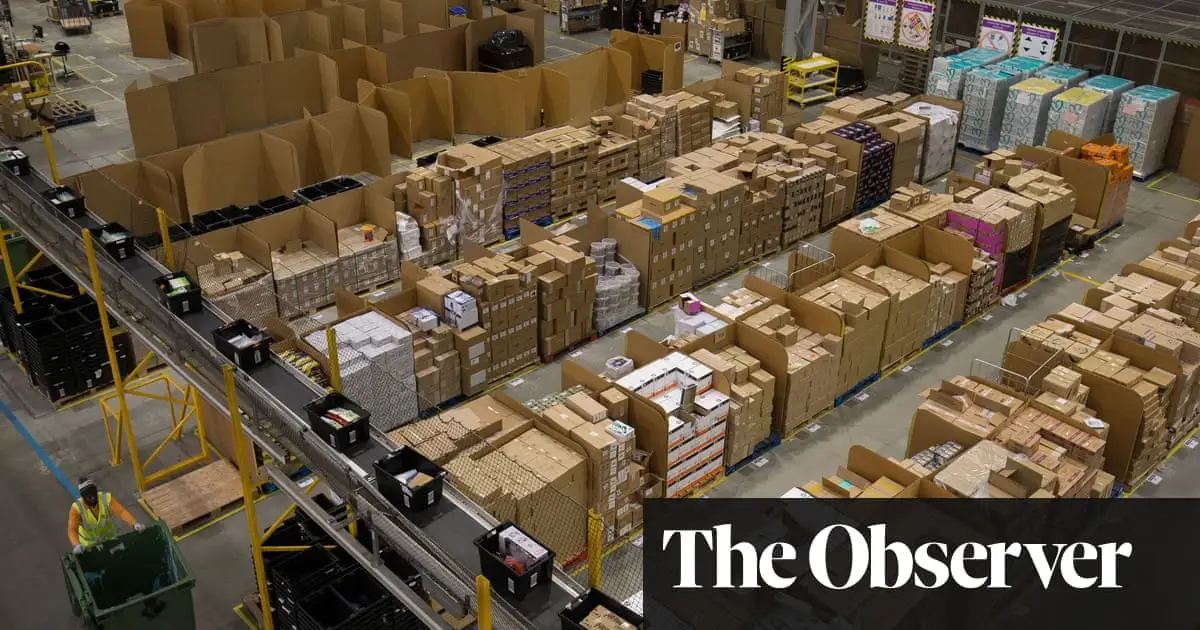Ambulances have been called out to Amazon warehouses more than 1,400 times in the past five years, the Observer can reveal. The figures, which were described as shocking by the GMB trade union, raise fresh questions about safety at the American giant’s UK workplaces.
Amazon centres in Dunfermline and Bristol had the most ambulance callouts in Britain, listing 161 and 125 across the period respectively.
A third of callouts by the Scottish Ambulance Service to the Amazon site in Dunfermline related to chest pains, with other callouts for convulsions, strokes and breathing problems recorded.
Ambulances have been called to Amazon Mansfield 84 times since 2019. More than 70% of those were for the most serious types of incidents – dubbed category 1 and 2, which can often relate to life-threatening conditions like heart attacks or strokes.
Attempted suicides or other serious psychiatric incidents were recorded at Amazon centres in Bolton, Chesterfield, Mansfield, Rugeley, London and many others.
Incidents related to pregnancies or miscarriages for workers on shift were also listed at several sites, as were traumatic injuries and suspected heart attacks. Other incidents included workers who were exposed to acids and hazardous gases, badly electrocuted or had severe burns over a significant part of their body.
…
Amanda Gearing, a GMB organiser involved in that effort, said the figures were “shocking, but not surprising” and called on local authorities and the Health and Safety Executive to investigate the company’s working practices. “Amazon workers are routinely pushed beyond the limits of human endurance,” she said. “They’re forced to work to a hidden target that isn’t based on safe working but on a Hunger Games algorithm.”
“Even these worryingly high figures might hide how commonplace injury and illness is at Amazon. We know from our members in Amazon warehouses that first-aiders are actively discouraged from ringing ambulances – instead told to take taxis,” she said.
The number of incidents being recorded at Amazon fulfilment centres and warehouses appears to be higher than the reported figures recorded for major fast fashion warehouses.
In a Vice investigation before the pandemic, warehouses for the likes of Boohoo, Missguided and Pretty Little Thing, described as “Victorian” by union officials, recorded 10 ambulance callouts or fewer a year.
In 2018, a freedom of information request from the GMB union found that a Tesco warehouse in Rugeley, near Birmingham, recorded only eight ambulance callouts in three years versus the 115 logged at a nearby Amazon site. Both warehouses employed large numbers of workers at the time – 1,300 at Tesco’s site and around 1,800 at Amazon’s.



To put this into better perspective we need to look at this relative to the number of employees. From the article:
So 6.15 calls / 1000 employees for Tesco vs 63 calls / 1000 employees for Amazon, or just over 10 times the rate.
I wonder what the differences are. Do Amazon force them to work a lot longer hours? Do they not provide air conditioning whereas Tesco do? Those two factors could make a huge difference.
Amazon are also dicks about sick leave. I’m sure forcing people to work, and work hard, when they’re ill leads to complications.
Thanks, for computing some useful statistics! As much as I believe the implied hypothesis that working at Amazon is bad for one’s health, I think the guardian intentionally tried to present the largest number possible with no context.
Frankly, “Amazon warehouse employees 10x more likely to need an ambulance” is a more impactful headline anyway.